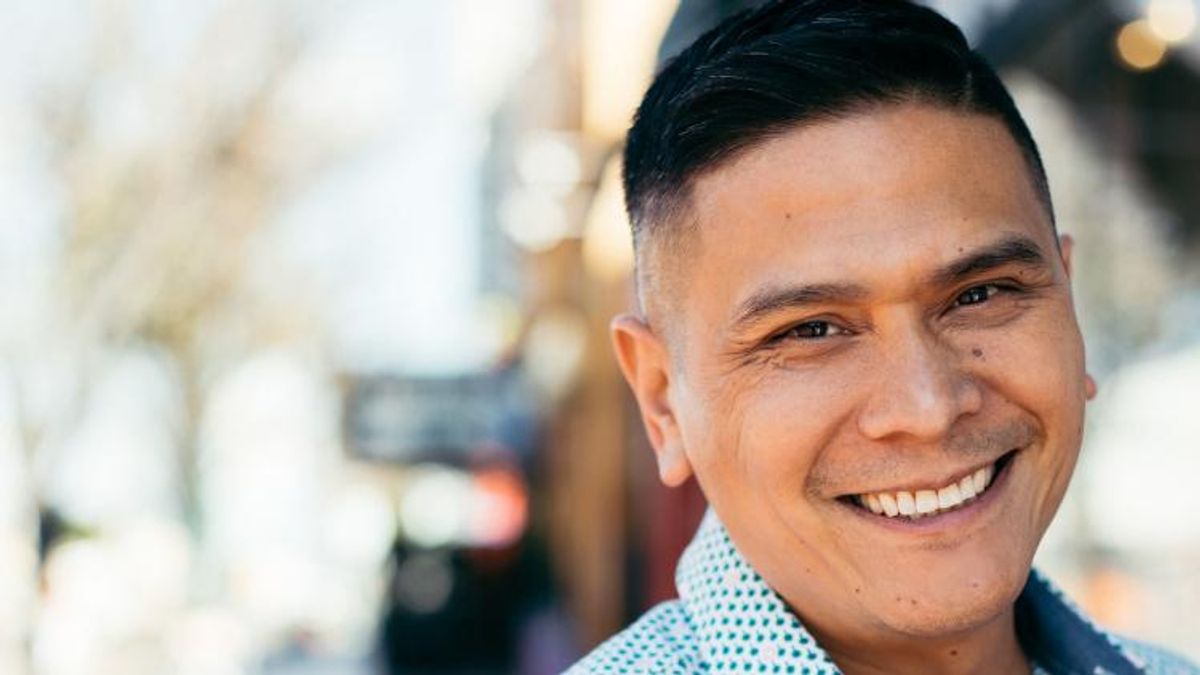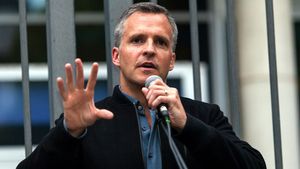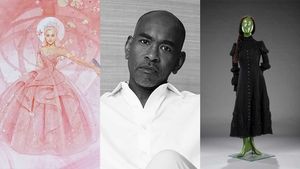For someone as accomplished as Andrew Spieldenner, Ph.D., it’s refreshing how candid and down-to-earth he remains. The current communications professor at California State University, San Marcos, and the new executive director of MPact Global Action for Gay Men’s Health and Rights — the 15-year-old, Oakland, Calif.-based organization that focuses on the needs of gay and bisexual men living with HIV — spoke to Plus on his first day on the job back in March.
“People are trying to hide that they’re still sexually active,” Spieldenner said, referencing the complications of sex during COVID. “I don’t think people should hide it, but I know why they do; there’s a lot of public shaming. We ought to create our sexual bubbles however we can. For us to pretend we don’t have sexual needs, that’s also a problem.… I do think we need to be more open about our sexual needs and be able to negotiate them.”
Spieldenner is taking the reins of MPact at a time when the coronavirus continues to upend life, especially for people living with HIV. It’s not only the risks inherent in having sex when COVID vaccinations have not reached everyone in the country, and certainly not everyone globally, but also the interruption of in-person doctor’s visits and, for some people with HIV, disruptions in their regimens.
But Spieldenner, who currently serves as vice-chair of the United States People Living With HIV Caucus and as the North American delegate to the UNAIDS Program Coordinating Board, views the upcoming challenges with resolve rather than anxiety.
“One of the things we learned in COVID was how communities take care of each other; how do we manage to communicate without being face-to-face,” he said. “Those lessons [we learned] around how to still build community and still thrive in these spaces as well as what we learned about who was the most marginalized and vulnerable. It’s exciting because we can take those lessons forward.
“One of the lessons with HIV for us as queer people is to really understand what risk we’re comfortable with. As queer people, we’re actually better adapted to COVID because we’ve already managed risk. As gay men we manage risk all the time. Will this trick beat me up? Will I get HIV? Will I get syphilis? We already have the skills to survive a pandemic. We did, and we’re doing it. We’re flexible; we adapt.”
It’s helpful for people to give credit to themselves for how much they’ve endured the past year and a half, Spieldenner said. Not many people in January 2020 would be able to wrap their heads around the fact that we’d have to socially isolate for over a year and that all our routines would be completely altered.
“There are so many dimensions of our relationships that have changed, including to the clinic,” Spieldenner said. “Many of us haven’t seen our doctor in a year, physically. Getting back into the practice of going in, getting your PrEP, your meds, all of it will be adapted to whatever happens next. I know there’s concern, particularly around PrEP. As a person with HIV, I feel it; I get tired of getting my pills.”
Part of Spieldenner’s new position leading MPact will be harnessing the incredible energy invested in fighting COVID and redirecting some of it to HIV, a pandemic that’s been around for at least 40 years and still lacks a vaccine or cure.
“There is a larger investment in COVID and the vaccine, which was fast-tracked,” Spieldenner said. “That’s partially about who’s impacted. HIV clearly impacts certain populations more. Last year, we saw most new diagnoses globally were gay and bisexual men, people of trans experience, sex workers, people who use drugs. The machine works the way it was meant to.”
Though MPact is based in California, much of its advocacy focuses on gay and bisexual men outside the U.S., with the organization working to end impediments to HIV and STI prevention and treatment, especially in nations hostile to men who have sex with men.
“We’re dealing with a lot of issues globally,” he said. “The uneven impacts of [COVID and HIV] and uneven distribution of the COVID vaccine during a time of uprisings happening all over the world for many issues, whether it’s social justice or uprisings against fascist states. It’s an extraordinarily frightening time but also an exciting time.”
Spieldenner’s first weeks will center on research and data collection; then he’ll go to MPact’s board of directors to advise where he want to focus the organization’s efforts and funding. He envisions expanding the group’s global reach — with the awareness that international travel will be complicated for the foreseeable future — and its grassroots efforts.
“I’d like every politically active person living with HIV, and gay and bisexual men especially, who wants to build community, [to know] that MPact is the place they find in three clicks,” Spieldenner said. “We can provide them resources, help them build a community group, help them raise awareness and build advocacy. I want to increase our communications so people know who we are and that they want to be part of our community.”
The board has already expressed confidence in the choice of Spieldenner to move MPact through the next decade.
“Andy is an inspiring and energetic leader. His passion for elevating the voice of the global LGBTI community and his intersectional approach to public health policy has earned Andy the esteem of advocates around the world,” MPact Board Chair Don Baxter said in a statement. “The board and staff are excited to work with Andy as our new executive director and confident that MPact will be well positioned under his guidance to thrive in the years to come.”
Aside from the COVID crisis eventually coming to an end in the next few years, Spieldenner finds other reasons for optimism. He sees opportunities to spread the message of Undetectable Equals Untransmittable (U=U), the concept that a person with HIV who maintains his or her medication regimen and has an undetectable viral load cannot transmit the virus to another person.
“When we see messaging like U=U, the structures that keep people undetectable need to be upheld,” he said. “They don’t work right now. They don’t work for people who are trans, they don’t work for people who are sex workers, don’t work for people who use drugs, and they don’t work very well with mental health issues, they don’t work well for people who are homeless.
“The clinicians, the institutions that support us need to embrace the U=U message. We still see a slow uptake in clinicians giving sex-positive messages. Our own HIV service organizations don’t give sex-positive messages, not for people with HIV.”
Then there’s the advent of long-term injectable treatment for those living with HIV, swapping the necessity of daily pills for shots that are effective for 30 or 60 days. Spieldenner sees benefits with not just convenience and adherence but also mental health.
“For those of us who are comfortable with [needles], it will take away a lot of the everyday reminder [of living with HIV],” Spieldenner said. “It will prevent a different kind of culture change in our community. Every technology advance has created a culture change, and I think injectables will too. I organize my day around my meds; I have to take them with meals, which meal, this and that. I’ve had HIV for 25 years, and not having to organize my day like that will be huge.”











































































